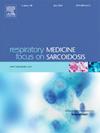Extracorporeal CO2 removal in severe respiratory acidotic intubated patients: A seven year experience observational study
IF 3.5
3区 医学
Q2 CARDIAC & CARDIOVASCULAR SYSTEMS
引用次数: 0
Abstract
Severe hypercapnia increases the risk of non-protective ventilation and is associated with high mortality in critically ill patients. In this study we assess the use of low-flow extracorporeal CO2 removal (ECCO2R) integrated into a renal platform and the factors related to patient outcome in a tertiary university hospital. Data from 73 patients with severe respiratory acidosis (pCO2 > 60 mmHg and Ph < 7.25 for more than 3 h) at risk for ventilator-induced lung injury (VILI), were analysed. The median duration of the therapy was 96 h (IQR 58 to 163). We observed that early use of ECCO2R (within 6h from meeting treatment criteria) was associated with a significant reduction in mortality (54.5 vs 77.5 %, p = 0.038) and a non-significant reduction in the duration of ECCO2R therapy, mechanical ventilation days, ICU length of stay and need for tracheostomy. Adverse events were found in 7 % of the patients, with no cases of major bleeding. A significant shorter mean life was observed for larger membranes (1.8 m2) in respect to 0.35 and 0.8 m2. We conclude that ECCO2R integrated into renal platforms is a feasible and safe technique in severe respiratory acidosis when there is risk for VILI.

求助全文
约1分钟内获得全文
求助全文
来源期刊

Respiratory medicine
医学-呼吸系统
CiteScore
7.50
自引率
0.00%
发文量
199
审稿时长
38 days
期刊介绍:
Respiratory Medicine is an internationally-renowned journal devoted to the rapid publication of clinically-relevant respiratory medicine research. It combines cutting-edge original research with state-of-the-art reviews dealing with all aspects of respiratory diseases and therapeutic interventions. Topics include adult and paediatric medicine, epidemiology, immunology and cell biology, physiology, occupational disorders, and the role of allergens and pollutants.
Respiratory Medicine is increasingly the journal of choice for publication of phased trial work, commenting on effectiveness, dosage and methods of action.
 求助内容:
求助内容: 应助结果提醒方式:
应助结果提醒方式:


